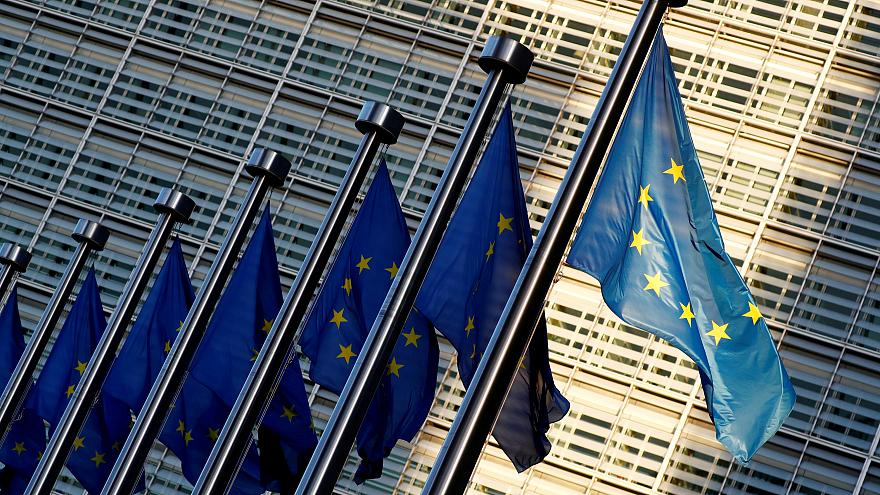EU’s new Iran trade mechanism doomed to fail

The latest attempts by the EU to salvage the nuclear deal have made headlines among the state-controlled news outlets in Iran. Three European governments — Germany, France and the UK — have set up a new mechanism called the Instrument in Support of Trade Exchanges (INSTEX). These three countries were all members of the P5+1, which struck the nuclear agreement with the Iranian regime in 2015.
INSTEX — based in Paris, managed by Per Fischer, a former manager at Commerzbank, and supervised by the UK — is primarily meant to circumvent US sanctions. After US President Donald Trump pulled out of the nuclear agreement last year, the US Department of Treasury imposed primary and secondary sanctions against the Iranian government. The sanctions are targeting a wide spectrum of Iran’s industries and sectors, including the banking system, oil exports, and currency transactions.
But, more importantly, although the EU was hoping to be immune from the sanctions imposed on Iran, Washington made it clear that both US and non-US entities that engage in business dealings with the Iranian regime would be violating the sanctions. European companies were then given time to pull out of Iran. The Treasury Department stated: “Non-US, non-Iranian persons are advised to use these time periods (90 and 180 days) to wind down their activities with or involving Iran that will become sanctionable at the end of the applicable wind-down period.”
But the EU did not appear to take the matter seriously until the US began holding those who were allegedly breaching the sanctions accountable. For example, Meng Wanzhou, the chief financial officer of Huawei, the largest telecoms equipment maker in the world, was arrested in Canada in December at the request of the American authorities. Previously, China’s ZTE Corp pleaded guilty to breaking US sanctions against the Iranian regime.
This sent a robust message to the EU that Washington is determined to punish those who continue to deal with the Iranian regime. Instead of cooperating with its old transatlantic partner, the EU began taking Tehran’s side and showed signs of defiance to Washington. As a result, it came up with INSTEX.
The EU is attempting to depict INSTEX as a mechanism that is built to save the nuclear deal. As German Foreign Minister Heiko Maas pointed out: “We’re making clear that we didn’t just talk about keeping the nuclear deal with Iran alive, but now we’re creating a possibility to conduct business transactions.”
Instead of cooperating with its old transatlantic partner, the EU began taking Tehran’s side and showed signs of defiance to Washington.
Dr. Majid Rafizadeh
But, in reality, the EU is trying to appease the Iranian leaders in order to help continue trading with the regime. The Iranian leaders, as well as the conservative and moderate news outlets, have been playing the good cop, bad cop strategy. For example, according to the Fars News Agency, Iranian Foreign Ministry Spokesman Bahram Qassemi welcomed the EU’s move. He said: “The Islamic Republic of Iran believes the recent move by the European Union to register and announce its special financial mechanism (for trade) with Iran is Europe’s first step in fulfilling its obligations toward Iran as per a May 2018 statement by the foreign ministers of Iran and the three European countries.”
On the other hand, the hardline outlets urged cautioned on INSTEX. The headline of the conservative newspaper Javan read: “INSTEX, another ‘almost nothing’ for Iran.” The hardline members of the country’s Majlis (parliament) bashed Iranian President Hassan Rouhani and his administration. Amir-Hossein Ghazizadeh Hashemi, a member of the Majlis presiding board, stated: “It is not clear until when the administration wants to continue this disgrace.”
The EU is unlikely to succeed in continuing to trade with the Iranian regime through its new mechanism for several reasons. First of all, the European mechanism will not help Tehran to gain more revenues due to the fact it is only for dealing with pharmaceutical, medical devices and food products. Iran’s main revenues come from the energy sector, notably the export of oil and gas. Secondly, most European firms and corporations, including French energy giant Total, have already abandoned their plans to invest in Iran.
Third, European companies will not want to risk their business with the US or access to US financial systems by dealing with Iran. The Trump administration is insistent that any move to bypass US sanctions will have severe consequences. Following the EU’s announcement of establishing INSTEX, the US embassy in Germany said it was “closely following” reports on the European mechanism. It added: “As the president has made clear, entities that continue to engage in sanctionable activity involving Iran risk severe consequences.”
The EU’s new mechanism is doomed to fail. From a political perspective, the Iranian leaders may view INSTEX as a blow to the US and a sign of a widening gap between the EU and Washington. But, more fundamentally, from an economic and financial perspective, the European mechanism will not come to the aid of the Iranian regime as it is unlikely to encourage European corporations to violate US sanctions by trading with Iran.
- Dr. Majid Rafizadeh is a Harvard-educated Iranian-American political scientist. He is a leading expert on Iran and US foreign policy, a businessman and president of the International American Council. He serves on the boards of the Harvard International Review, the Harvard International Relations Council and the US-Middle East Chamber for Commerce and Business. Twitter: @Dr_Rafizadeh









































